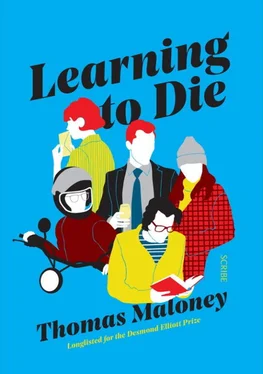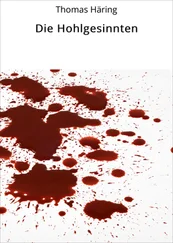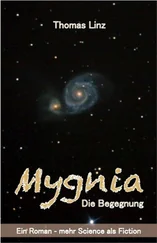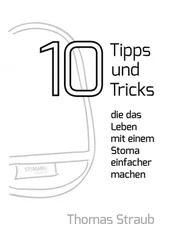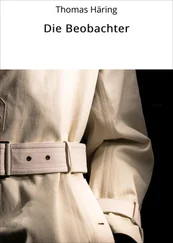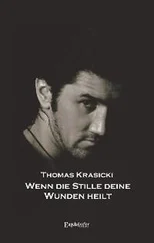Brenda feels a faint touch of foreboding, a sense that she might regret her insistence. She’d like to change to a lighter subject, but it’s too late. ‘You tell me,’ she says, slowly dismembering a croissant.
Natalie Mock stands on the stinging bathroom tiles with bed hair and a man’s T-shirt down to mid-thigh, holding a packet of pills. A red arrow directs her to the next pill in the sequence. Eat me and lose Dan forever.
Dan’s three reasons for not having a baby were: for her sake, because she should be able to start again and live her life to the full with someone else; for his own sake, because it would — he thinks — make his predicament, his exit from the world, immeasurably more painful; and for the child’s sake, because every child deserves a father.
Stated together they sound damning, but examine each in turn and it doesn’t hold water. The opposing case, her case, is not a list. It is simply this: a child is hope and defiance against the terrible looming abyss of Dan’s absence.
She looks up at her reflection. Some decisions she is perhaps entitled to make.
Dan rides hard, without a destination in mind, keeping the sun roughly behind him. Takes turnings he’s always passed by and soon finds himself in unknown country. Everywhere the mocking vigour of early spring.
He accelerates down a long straight and thinks of all the misery lying ahead. The indignity, the frustration, above all the bloody wasted effort of all concerned. He can switch all that off with a flick of his hand. Later he’ll be trapped, but right now, just a flick. His chance, right now.
But around each and every corner is more life, waiting for him. How could anyone willingly renounce it? His bike is a kinetic spark tracing these fertile wrinkles on the planet’s skin, his mind a laser, projecting the perfect course on the road ahead, the rhythm guitar’s staccato thump is heaven in his ears and crowds of adoring daffodils, ferociously abundant, are cheering him on.
He brakes too late for the next bend, much too late, and feels the bike let go of the road. He closes his eyes while the nest of forces unravels according to Newton’s clear instructions, and the divine music plays on.
‘It’s deliberate,’ says James, in answer to his own question. Brenda picks a crumb from the corner of her mouth. ‘Our use of language draws distinctions but it also makes connections. We use the same love word for these things because they’re all the same thing. “What thing?” you ask. What is this love thing? It’s an emanation of the self. It’s an involuntary manifestation of a part of ourselves that we cannot otherwise see — the deepest core of the self. Belief could be considered another emanation — if anyone believed anything anymore — but belief can be conditioned. Love can’t.’
‘If love is all about the self,’ asks Brenda, her foreboding now tinged with panic, ‘where does the thing — or the person — you love come into it?’ James is oblivious.
‘The object of our love creates the resonance,’ he replies with a dismissive wave of his hand. ‘But the thrill is in self-discovery. Love is a mirror. “Love thy neighbour!” we’re told. But you can’t choose to love, and you can’t compel someone else to love. Love happens, or it doesn’t. It always tells truth about what you have hidden inside you. Meeting you has helped me to understand all this.’
‘Meeting me?’
‘Absolutely. Before I met you, I was washed up — I was finished. I didn’t know myself anymore. Believe it or not, I used to have this ridiculous plan to meet someone, to engage with someone emotionally, specifically to help me rediscover the person I used to be — I called it Project Q. Well guess what? Project Q came up trumps!’ He points at her and laughs. She feels sick. ‘You’ve been like — like an echo-sounder. Through the response I felt when I met you, and feel again each time I see you, I can see the very roots of myself, unreachable and ungovernable. It’s a goldmine for my writing. I can see past loves, some just fossils, others still alive but twisted round on themselves. Some loves are extensions of these unyielding roots, while others are just sort of breathed out like smoke. But I’ve been able to harness it, this process of revelation, in the novel.’ He points excitedly at the laptop. ‘Whatever happens to us now, whether the resonance we’re feeling lasts or fades, it doesn’t matter, because this record, this testimony will remain.’
The cascade of words runs dry. James turns his exultant gaze from the laptop to Brenda’s face. She’s been hauled out of this once-happy room to a high and lonely vantage, looking down at her pathetic, mooning, love-struck self. His surprise at seeing something in her eyes he wasn’t expecting, expressed in the sudden dropping of his saliva-flecked lower lip, shows him to be as deluded as her. He’s about to speak, to question, when her anger detonates in a glorious flood of adrenaline. In one movement she leaps to her feet, snatches the laptop from the bed and turns towards the door.
‘Brenda?’
By the time he thinks to leap after her, she has one foot on the landing. She waits for his approach, then flings the door into his face. She takes the narrow stairs in threes, silently rejoicing in his pain, swings into the hall and grapples with the latch of the front door. He crashes down the stairs just as she gets it open.
‘Brenda! What are you doing? I didn’t mean it like that! Stop, for God’s sake! Give it back!’
He’s getting it now too — the adrenaline rush. She meets his eyes for a moment, says nothing, leaps into the street and down to the ramp. Plants her feet firmly on the glossy, barnacled cobbles. Brenda Vickers doesn’t throw like a girl. The Frisbee-spinning laptop flashes high. She turns her head and meets his eyes again just as the deep, dull thump of laptop meeting cold North Sea resounds behind her.
He’s standing in the street, arms by his sides, nose bleeding, face like death. He has no words.
‘Didn’t you have a back-up?’ asks Brenda, casually, as she strolls past him to the door of the cottage, climbs the stairs, stuffs a few belongings into her rucksack and returns to the street. His body hasn’t moved — his eyes are still fixed on the point of impact. As for his soul, who knows? Who cares? Brenda walks up the street, away from the sea.
Her gaze wanders idly like that of a tourist, and falls on a shop selling fudge. She steps in, buys a handful of vanilla choc chip and savours it, piece by piece, as she climbs the steep hill towards the bus stop.
Brenda loves fudge. She can’t help loving fudge. It’s an emanation of the self.
‘There is… not so much misery in us as emptiness…’
Montaigne
James F. Saunders watches the heave and suck of the spastic sea. Stuff of madness. Destruction fantasy. He begins to shiver, then retches without warning. Stringy dribble of vomit and bloody snot on the cobbles. A gull swoops half-heartedly and veers away.
He turns, dimly registers Hugo’s moonlike face watching from a window with his round, black, crater mouth. Climbs the stairs to his room: the room where his laptop, his novel, is not. His eyes search for it, disbelieving, and then, moderating their goal, seek out something to cleanse the puke. The whisky she brought. Laphroaggie. Laugh rage. Medicinal purposes, she said. He fumbles with the heavy foil, pulls the stopper and swills. Cleansing fire. Choking liar. Gasping choir.
Dan Mock can hear a bird singing. A greenfinch, if he’s not mistaken. The other music — pounding drums, angry man shouting in his head — has stopped. He sees greenery squashed against his visor and smells its fierce distress, smells something else too, something delicate and lovely. He tries to move. Turns his head without pain. A limb which seems to be his arm rustles some plants noisily, communicates a sensation of damp, and eventually presents a fully-functioning gloveless hand to the glossy problem of the helmet. He exerts his shoulders and another arm enters the fray. The helmet comes off and here is the wet, bright world.
Читать дальше
